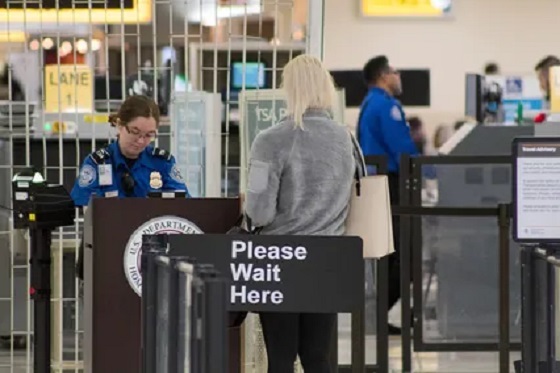Alberta
Tech, sustainability key to attracting young talent to an evolving agriculture sector

Canada’s farmers are getting older, and most don’t have a clear succession plan, leaving a big question over who will take over the agriculture sector as a wave of retirements loom.
But industry insiders say an increased focus on technology and sustainability is helping attract younger generations to agriculture, including those coming to the field for the first time.
Young people entering farming from other industries will be key to the sector’s evolution as it grapples with challenges like climate change, said Todd Klink, chief marketing officer at Farm Credit Canada.
“We’re going to need technology, we’re going to need innovation, we’re going to need new ideas and new approaches,” he said. “So when you meet young people that have these new ideas and come from different disciplines, it’s super exciting.”
The demographics of farm operators show an industry in clear need of rejuvenation, even as the barriers to entry can be daunting.
The average age of a Canadian farm operator was 56 in 2021, according to Statistics Canada, and the median age 58, with both those figures rising from the previous census. More than 40 per cent of those operators plan to retire over the next decade, according to a report from the Royal Bank of Canada, Boston Consulting Group Centre for Canada’s Future and Arrell Food Institute at the University of Guelph.
While some will pass the business on to their children — 12 per cent of farms told Statistics Canada they had a succession plan in 2021 — it’s no easy feat to buy or sell a farm, nor to start one from scratch, due to the high costs of land and equipment, as well as the fact that over time, farms have consolidated and therefore gotten bigger on average.
“Unless you’re inheriting or you’re part of a succession plan for an existing farm … it’s nearly impossible to get into it from the ground up,” said Joy Agnew, vice president of research at the Olds College of Agriculture and Technology in Alberta.
Money isn’t the only barrier for attracting the younger generations into agriculture, said Agnew. There are perceptions that farming is hard, dirty work that makes no money, she said — even though agriculture contains a wide range of jobs that don’t look like stereotypical farm work, and most of them don’t involve buying or inheriting a farm.
But as farms adopt more technology such as automated steering and drones, the college has seen increased interest, she said.
“We’re seeing more and more young people in those very niche technological areas like software development or coding or instrumentation or robotics,” said Agnew. “They’re now seeing careers for themselves in the (agriculture) sector.”
Alongside the technological shift, farmers are increasingly adopting sustainable practices, Statistics Canada says, using practices like cover crops and no-till agriculture in efforts to mitigate climate change.
Younger generations are showing more interest in sustainable practices, including ways to maximize yields from smaller farms that are more financially accessible.
Georges Boudreau and his partner Béatrice Cloutier-Hébert established Ferme La Chaleureuse in Carleton-sur-mer, Que. last year. Using less than two acres, the pair deploy a technique called bio-intensive farming, which focuses on maximizing the yield of a small piece of land. Boudreau learned the technique at La Ferme des Quatre-Temps in Hemmingford, Que., which trains young farmers in addition to growing and selling produce.
Boudreau said while there will always be a need for large farms, he sees growing interest in smaller farms that feed their nearby communities.
“That’s what I think is the future. Less industrial farming and more community and smaller farms.”
And in an effort to grow more local food year-round, there’s another trend set to help fill the gap: indoor farming, whether in greenhouses or vertical farms. The total area of greenhouses in Canada grew by more than 23 per cent in 2021 compared with 2016.
Barry Murchie founded GoodLeaf Farms in 2011 after working in food for several decades, including at McCain Foods for 25 years. GoodLeaf’s production of leafy greens and micro greens is currently centred in Guelph, with facilities in Calgary and Montreal set to open this summer.
Murchie said the technology underpinning vertical farming is allowing for a new kind of agriculture that can take place in urban centres. GoodLeaf’s employees come from a range of backgrounds, with average ages in the 30s, and tend to be concerned about the environment and the food supply chain, he said.
“We have people who are sort of early in their careers making decisions to come and join GoodLeaf,” said Murchie. “They want to work in an environment that they feel that what they’re doing is beneficial for the planet.”
Growing public scrutiny of where food comes from is generating more interest in the agriculture industry among younger generations, said Dustin Farr, an instructor of agriculture management and precision agriculture at the Werklund School of Agriculture Technology, which is part of Olds College.
As a result, Farr said he’s seeing more and more students coming to agriculture from increasingly diverse backgrounds. He says that while he’s well aware of the challenges facing the industry, his students leave him feeling optimistic.
“We have some brilliant minds that are coming into agriculture.”
This report by The Canadian Press was first published May 22, 2023.
Rosa Saba, The Canadian Press
Alberta
Median workers in Alberta could receive 72% more under Alberta Pension Plan compared to Canada Pension Plan

From the Fraser Institute
By Tegan Hill and Joel Emes
Moving from the CPP to a provincial pension plan would generate savings for Albertans in the form of lower contribution rates (which could be used to increase private retirement savings while receiving the same pension benefits as the CPP under the new provincial pension), finds a new study published today by the Fraser Institute, an independent, non-partisan Canadian public policy think-tank.
“Due to Alberta’s comparatively high rates of employment, higher average incomes, and younger population, Albertans would pay a lower contribution rate through a separate provincial pension plan while receiving the same benefits as under the CPP,” said Tegan Hill, director of Alberta policy at the Fraser Institute and co-author of Illustrating the Potential of an Alberta Pension Plan.
Assuming Albertans invested the savings from moving to a provincial pension plan into a private retirement account, and assuming a contribution rate of 5.85 per cent, workers earning the median income in Alberta ($53,061 in 2025) could accrue a stream of retirement payments totalling $454,741 (pre-tax)—a 71.6 per cent increase from their stream of CPP payments ($264,968).
Put differently, under the CPP, a median worker receives a total of $264,968 in retirement income over their life. If an Alberta worker saved the difference between what they pay now into the CPP and what they would pay into a new provincial plan, the income they would receive in retirement increases. If the contribution rate for the new provincial plan was 5.85 per cent—the lower of the available estimates—the increase in retirement income would total $189,773 (or an increase of 71.6 per cent).
If the contribution rate for a new Alberta pension plan was 8.21 per cent—the higher of the available estimates—a median Alberta worker would still receive an additional $64,672 in retirement income over their life, a marked increase of 24.4 per cent compared to the CPP alone.
Put differently, assuming a contribution rate of 8.21 per cent, Albertan workers earning the median income could accrue a stream of retirement payments totaling $329,640 (pre-tax) under a provincial pension plan—a 24.4 per cent increase from their stream of CPP payments.
“While the full costs and benefits of a provincial pension plan must be considered, its clear that Albertans could benefit from higher retirement payments under a provincial pension plan, compared to the CPP,” Hill said.
Illustrating the Potential of an Alberta Pension Plan
- Due to Alberta’s comparatively high rates of employment, higher average incomes, and younger population, Albertans would pay a lower contribution rate with a separate provincial pension plan, compared with the CPP, while receiving the same benefits as under the CPP.
- Put differently, moving from the CPP to a provincial pension plan would generate savings for Albertans, which could be used to increase private retirement income. This essay assesses the potential savings for Albertans of moving to a provincial pension plan. It also estimates an Albertan’s potential increase in total retirement income, if those savings were invested in a private account.
- Depending on the contribution rate used for an Alberta pension plan (APP), ranging from 5.85 to 8.2 percent, an individual earning the CPP’s yearly maximum pensionable earnings ($71,300 in 2025), would accrue a stream of retirement payments under the total APP (APP plus private retirement savings), yielding a total retirement income of between $429,524 and $584,235. This would be 22.9 to 67.1 percent higher, respectively, than their stream of CPP payments ($349,545).
- An individual earning the median income in Alberta ($53,061 in 2025), would accrue a stream of retirement payments under the total APP (APP plus private retirement savings), yielding a total retirement income of between $329,640 and $454,741, which is between 24.4 percent to 71.6 percent higher, respectively, than their stream of CPP payments ($264,968).

Joel Emes
Alberta
Alberta ban on men in women’s sports doesn’t apply to athletes from other provinces

From LifeSiteNews
Alberta’s Fairness and Safety in Sport Act bans transgender males from women’s sports within the province but cannot regulate out-of-province transgender athletes.
Alberta’s ban on gender-confused males competing in women’s sports will not apply to out-of-province athletes.
In an interview posted July 12 by the Canadian Press, Alberta Tourism and Sport Minister Andrew Boitchenko revealed that Alberta does not have the jurisdiction to regulate out-of-province, gender-confused males from competing against female athletes.
“We don’t have authority to regulate athletes from different jurisdictions,” he said in an interview.
Ministry spokeswoman Vanessa Gomez further explained that while Alberta passed legislation to protect women within their province, outside sporting organizations are bound by federal or international guidelines.
As a result, Albertan female athletes will be spared from competing against men during provincial competition but must face male competitors during inter-provincial events.
In December, Alberta passed the Fairness and Safety in Sport Act to prevent biological men who claim to be women from competing in women’s sports. The legislation will take effect on September 1 and will apply to all school boards, universities, as well as provincial sports organizations.
The move comes after studies have repeatedly revealed what almost everyone already knew was true, namely, that males have a considerable advantage over women in athletics.
Indeed, a recent study published in Sports Medicine found that a year of “transgender” hormone drugs results in “very modest changes” in the inherent strength advantages of men.
Additionally, male athletes competing in women’s sports are known to be violent, especially toward female athletes who oppose their dominance in women’s sports.
Last August, Albertan male powerlifter “Anne” Andres was suspended for six months after a slew of death threats and harassments against his female competitors.
In February, Andres ranted about why men should be able to compete in women’s competitions, calling for “the Ontario lifter” who opposes this, apparently referring to powerlifter April Hutchinson, to “die painfully.”
Interestingly, while Andres was suspended for six months for issuing death threats, Hutchinson was suspended for two years after publicly condemning him for stealing victories from women and then mocking his female competitors on social media. Her suspension was later reduced to a year.
-

 Opinion1 day ago
Opinion1 day agoPreston Manning: Three Wise Men from the East, Again
-

 Addictions1 day ago
Addictions1 day agoWhy B.C.’s new witnessed dosing guidelines are built to fail
-

 Uncategorized2 days ago
Uncategorized2 days agoCNN’s Shock Climate Polling Data Reinforces Trump’s Energy Agenda
-

 Business1 day ago
Business1 day agoCarney Liberals quietly award Pfizer, Moderna nearly $400 million for new COVID shot contracts
-

 Business1 day ago
Business1 day agoMark Carney’s Fiscal Fantasy Will Bankrupt Canada
-

 Energy22 hours ago
Energy22 hours agoActivists using the courts in attempt to hijack energy policy
-

 National14 hours ago
National14 hours agoCanada’s immigration office admits it failed to check suspected terrorists’ background
-

 conflict14 hours ago
conflict14 hours agoTrump’s done waiting: 50-day ultimatum for Putin to end Ukraine war







